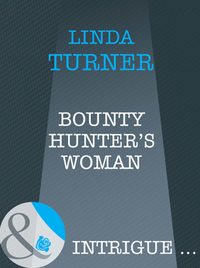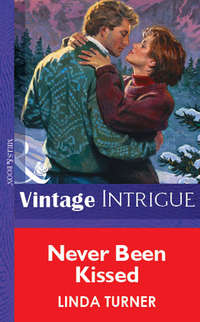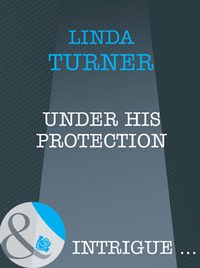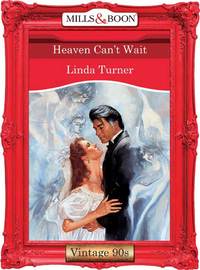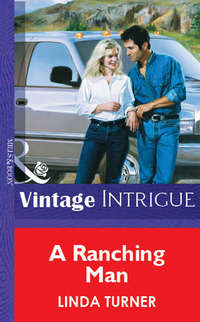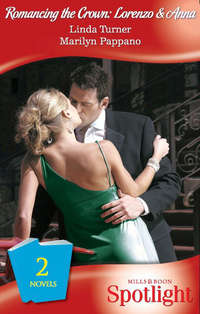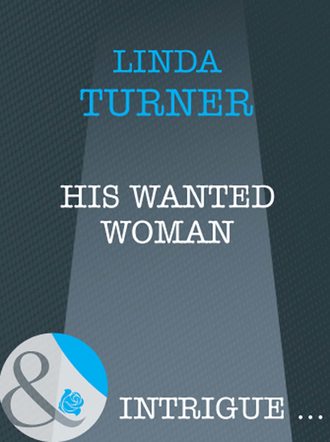
Полная версия
His Wanted Woman
He shouldn’t have come here today, he silently acknowledged. And he certainly shouldn’t have approached her without another agent with him to witness what went down. It was totally against procedure.
But the more he investigated Mackenzie Sloan, the more she confused him. She looked like a modern-day Princess Diana, for God’s sake, and there wasn’t a hint of scandal attached to her name. So how was she up to her pretty little ears in the sale of stolen antiquities? Frustrated, he’d been on the way home from work when he’d decided on the spur of the moment to stop by her shop and confront the lady face-to-face.
In for a penny, in for a pound, he thought, and mocked, “You don’t deal with thieves, huh? That might be easier to believe if you weren’t one yourself.”
Surprised, she gasped, “What are you talking about? I’ve never stolen anything in my life!”
“Oh, really? Then what would you call this?” And reaching into his pocket, he pulled out a second yellowed piece of paper.
Watching her closely, Patrick saw her eyes flare at the sight of a playbill from Ford’s Theatre that was given to theatergoers the night of Lincoln’s assassination. It was her nearly soundless gasp, however, that told him everything he needed to know. He wasn’t surprised she recognized the stolen document. She should have.
She was the one who’d sold it to a private collector on eBay.
Chapter 2
Outraged, Mackenzie couldn’t believe he was serious. “Excuse me?”
“You heard me,” he said coolly. “If you’ve never stolen anything in your life, what would you call this? This was Lincoln’s playbill the night he was shot.”
“I know what it is,” she huffed, “but I don’t where you got the idea it was stolen. My father—”
“Stole it from the National Archives,” he cut in.
“He did not!”
“And you sold it on eBay to a private collector,” he continued. “So save the outrage and pretend innocence for someone who appreciates it. You recognized the playbill the second I showed it to you.”
Mackenzie didn’t deny it. “Of course I recognize it,” she retorted, stung. “I inherited the business from my dad three months ago and I’ve been selling a lot of the excess inventory. I sold the playbill last month.”
“So you admit it,” he said smugly.
“I admit that I sold it,” she said, irritated, “not that it was stolen. It couldn’t have possibly been. My father bought the playbill from a descendant of a congressman who was at Ford’s Theatre the night of the assassination.”
“How do you know that for sure? Did your father investigate this so-called descendant? What’s his name? Could he prove continuous ownership of the playbill? Where did your father meet him?”
He threw questions at her like bullets, grilling her like she was some kind of ax murderer when he was the one who had some explaining to do. Indignant, she snapped, “You’ve got a hell of nerve! My father was in this business for thirty years, and he had an impeccable reputation. Don’t you dare stand here in his shop and slam him!
“And you’re a fine one to talk,” she added, glaring at him. “Speaking of where things come from, where did you get your map, mister? From some sleazy forger? Oh, yeah, I know it’s a fake. My father taught me how to spot a phony when I was eight years old.”
And with no more warning than that, she reached over and snatched up the map he’d laid on the counter when he pulled the playbill from the inside pocket of his jacket. “I’ll take that, thank you very much. I’m not going to stand by and let you sell that to some poor unsuspecting schmuck who’s got sucker stamped on his forehead. Now get out of here before I call the police.”
He studied her with real admiration in his eyes. “You’re good,” he told her, his smile mocking. “The outrage in your voice, that spark of anger in your eyes—I’ve got to tell you, sweetheart, you’re just about the best I’ve ever seen. But you know what? I’m going to call your bluff.”
“It’s not a bluff! And don’t call me sweetheart!”
“Then go ahead and call the police,” he taunted. “And while you’re at it, make sure you tell the dispatcher that I’m a federal agent for the Archives.”
When he slapped his badge down on the counter in front of her, Mackenzie couldn’t take her horrified gaze off it. This couldn’t be happening, she thought, dazed. There had to be a mistake. She’d never taken anything that didn’t belong to her, and neither had her father. And every time she purchased an antique document or rare book, she checked the chain of ownership…just as her father had. There was no way either one of them could have bought stolen documents.
“I don’t know where you got your information,” she said flatly, “but you’re wrong. My father would never do such a thing, and neither would I. You’ve made a mistake.”
“You think so? Then maybe you can explain why two dozen documents were missing after your dad did research at the Archives. And don’t tell me he never did research there. I’ve got the records to prove it.”
Cold dread tightened Mackenzie’s stomach into a hard knot of nerves. He was so sure, so cocky, but if he thought he was going to make her doubt her own father so easily, he could think again.
“And that’s your proof?” she challenged. “My father did research at the Archives for decades. So have thousands of other people over the years. When exactly did one of the Archives’s employees discover documents were missing?”
“Two months ago.”
“A month after my father died?”
“We believe the papers went missing during your father’s visit to the Archives last year.”
“You believe?” she said sharply. “You aren’t sure?”
He shrugged. “The Archives has billions of documents. It’s impossible to inventory them all.”
“Then how do you know my father took anything if you don’t even know what really belongs to the Archives?”
“We have documents connected to the missing items,” he retorted. “Responses to letters, maps from the same military campaigns. Trust me, we know.”
“Trust you?” she scoffed. “I don’t think so. Not when you’re making accusations and you don’t even know for sure that the missing documents were in the files at the time my father did his research. They could have been stolen years before that.”
“True,” he agreed. “The only problem with that is you sold all of the missing items on eBay. So where did you get them if your father didn’t steal them?”
Caught in the trap of his mocking eyes, Mackenzie couldn’t believe he was serious. Her father was the best man she’d ever known. He’d taught her more about history than any college professor she’d ever had, and there was nothing he respected more than the rare books and documents he bought and sold to collectors all over the world. He would never have stolen the very things he loved, then sold them to an unsuspecting buyer. He wasn’t that kind of man.
And yes, she did sell the playbill Agent O’Reilly taunted her with, as well as the other documents he claimed her father had stolen. There were no file notes, however, nothing to indicate that the documents were anything but privately owned. So why would she suspect anything? None of this made any sense.
Except that your father was doing research at the Archives, an irritating voice whispered in her ear. If he’d wanted to steal something, the opportunity was there.
Cold chills raced down her arms at the thought. No! she silently cried, drowning out the doubt that suddenly pulled at her like a molester in the night. Her father knew he was dying…and that any theft at the Archives would turn up long after he died. He had to know that if he really stole something, she would be the one to take the fall for him. He loved her. He wouldn’t have done that to her. He would have sold his soul first.
Fighting the need to cry just at the thought, she lifted her chin and met the agent’s gaze head on. “My father wasn’t a thief. I don’t care what records you found or what misguided conclusions you’ve come to. You’re wrong. I handled every one of those documents. There was nothing on them to indicate they were the property of the U.S. government.”
“So where did they come from if they weren’t stolen?” he demanded. “Show me your records.”
She didn’t even blink. “Where’s your search warrant?”
Patrick had to give her credit. She was quick. And he’d made the rookie mistake of letting his curiosity get the best of him when he’d shown up here in the first place. He was still investigating her, still putting the case together, still trying to determine exactly what her father may have stolen and just how much she knew about it. He didn’t have a search warrant yet, and now he’d tipped his hand.
Cursing his own stupidity, he said, “You’ll get it soon enough. It’s in the works.”
“What the heck does that mean?” she demanded. Then her blue eyes flared as understanding hit her. “You don’t have enough evidence. You think my father stole those documents, but you can’t prove it. So you showed up here with your fake map just to see what kind of person I was. Or were you hoping you’d find a reason to arrest me?”
“I’m just doing my job,” he said with a shrug. “If you’ve done nothing wrong, you’ve got nothing to worry about.”
Fuming, she stepped around him to snatch open the front door to her shop. “I have nothing else to say to you. Get out. And next time you decide to check me out, you sure as hell better bring a search warrant.”
When he hesitated, she added coldly, “The shop closed ten minutes ago. Don’t make me call the police.”
She would, Patrick thought with reluctant admiration. She had a hell of a lot of explaining to do about her shady business practices and the evidence that was piling up against her, and she was threatening to call the cops on him? She was something else.
“Save your call to the cops, and call a lawyer instead,” he advised as he strode out. “You’re going to need one.”
When she slammed the door behind him, Patrick didn’t even flinch. He wasn’t impressed with her anger. She was in the business of selling privately owned records of the past, and she had every right to sell anything she wanted that she’d bought from private citizens. But when she sold stolen documents from the National Archives, she was stealing the history of the United States.
And she wasn’t going to get away with it, he promised himself. The problem was, even though he’d led her to believe differently, he didn’t have a clue how many documents her father had really taken from the Archives. He’d tracked down those ten that had been sold on eBay, and knew for a fact that there weren’t any more posted on the Internet, but that didn’t mean anything. The more valuable items could have been sold to private buyers and would never see the light of day again. Without Mackenzie Sloan’s cooperation—and records—his investigation was at a dead end.
He had to find a way to gain her trust, he decided, and the only way he could think of to do that was to appeal to her apparent love of history. If greed hadn’t completely darkened her soul, she just might care enough about the loss of some of the documentation of the country’s past to step up to the plate and help him. If that didn’t work, then he’d appeal to her own self-preservation. She wouldn’t like prison.
And he wouldn’t like putting her there. There was nothing he liked more in a woman than intelligence, and she had plenty of that. When you added flashing blue eyes, a pretty face and plenty of spunk to the package, she was a hard woman to ignore.
Suddenly realizing where his thoughts had wandered, he swore softly as he reached his car. He didn’t care how pretty she was; he wasn’t interested in her as anything but a suspect. He had no use for a lying woman—he’d been there, done that—and had good reason to never trust any female other than his mother and aunts ever again. A smile from Mackenzie Sloan didn’t change the fact that she was a suspect. And if his investigation proved that her father was guilty and her partner in crime, she was going to hate the day he ever walked in her shop. Because he would do everything he could to put her in jail.
Pacing restlessly, her stomach roiling with worry, Mackenzie snatched up the phone the second it rang. “Stacy! Thank God!”
“What’s wrong?” she demanded. “I just got your message. Are you all right?”
Not sure if she wanted to cry or throw something, she said, “No, I’m not all right! You know that good-looking hunk you thought was so wonderful when you were here earlier? He’s an agent with the National Archives, and he’s investigating me.”
“What? John and I will be there in ten minutes.”
Eight minutes later, Stacy and her husband, John, rushed into the shop. Sinking into a chair at the reading table, Stacy rested her hand on her stomach and braced herself. “Don’t sugarcoat it. Give me the worst. What are the Feds after and what did you say?”
“In a minute,” Mackenzie said, frowning as she and John both stepped to her side. “Are you all right? I shouldn’t have called you. I wasn’t thinking.”
“I’m your lawyer, silly,” she scolded. “Of course you should have called me. And just because I’m pregnant, doesn’t mean I can’t work.”
“You’re supposed to be taking it easy,” John reminded her. A tall, quiet man who absolutely adored his headstrong wife, he knew better than anyone that Stacy did what Stacy wanted to do. Still, he tried. “The doctor said—”
“He’s an old woman, sweetheart,” she said with a dismissive wave of her hand. “He worries too much. I’m fine.”
Mackenzie exchanged a look with John, who only grinned and shrugged. Mackenzie couldn’t be quite so blasé. Stacy was more than her best friend. She was the closest thing to family she had left. And from the moment she’d told her she was pregnant, Mackenzie had been worried to death about her.
And with good reason. She’d never been pregnant herself, but Mackenzie knew the risks. When she was twelve years old, her mother died in childbirth, and that tragedy still affected her sixteen years later. If something happened to Stacy…
“You still need to put your feet up,” she said quickly. “Here, let me get you some tea.”
Watching her flit around the shop, into the kitchen and back for hot tea and homemade cookies, then stoke the fire in the fireplace, Stacy finally said quietly, “It can’t be that bad, Mac. Tell me.”
Up until then, Mackenzie would have sworn that even though she was furious with Agent O’Reilly, she was in complete control of her emotions. Then tears came out of nowhere to sting her eyes. “I’m sorry,” she choked, furiously wiping at the tears that spilled over her lashes. “I just can’t believe this is happening. The Feds think Dad stole documents from the National Archives.”
“What? You can’t be serious.”
“Oh, it gets better,” she replied. “According to Agent O’Reilly, I knowingly sold the documents Dad stole on the Internet.”
Her friend looked at her as if she’d lost her mind. “That’s ridiculous! You’ve never done anything dishonest in your life, and neither did your dad. Agent O’Reilly’s obviously made a mistake.”
Mackenzie desperately wanted to believe her, but he’d seemed so sure. “He had a playbill I’d sold on eBay,” she said, pacing restlessly. “It was from Ford’s Theatre the night Lincoln was shot. He claims it was Lincoln’s and belongs to the Archives.”
“That seems like a difficult thing to prove unless it’s got Lincoln’s blood on it,” John said, frowning. “Where did you get it?”
“From Dad. He told me he bought it from the descendant of a congressman who was in the audience that night.”
“That’s certainly possible,” Stacy said. “Obviously, you believed him at the time. Why wouldn’t you? The question is…do you still?”
Mackenzie had been asking herself that ever since Agent O’Reilly walked out the door. “I don’t know,” she admitted. “I don’t want to believe Dad would do such a thing, but there’s no other explanation. If that playbill really was stolen from the Archives, how did it end up in Dad’s possession if he didn’t steal it?”
“Maybe he bought it from the thief,” Stacy suggested. “If that’s the case, the story he told you was probably the same one the thief told him. He wasn’t lying.”
“Or he bought it from a legitimate owner,” John pointed out. “Playbills would have been given to all the theatergoers at Ford’s Theatre the night Lincoln was killed. How many people saved theirs? There’s probably dozens of them in private collections.”
“But wouldn’t Agent O’Reilly know if it belonged to the Archives?” Stacy said, frowning.
“Not necessarily,” Mackenzie replied and repeated what the agent had told her about how documents were inventoried at the Archives. “Just because a document doesn’t have any stamps or file numbers doesn’t mean it doesn’t belong to the government.”
“So he can’t be sure that the playbill belongs to the Archives, either,” John said. “If that’s the case, why is he going after you?”
Mackenzie had been asking herself that ever since she’d kicked the irritating man out of her shop. “I don’t know. The only thing I can think of is that he suspected Dad because he spent so much time at the Archives. Then when he checked eBay and saw that I had sold documents, he assumed they were ones stolen from the Archives.”
“But he doesn’t even know what’s missing,” Stacy pointed out indignantly. “It sounds like a witch hunt to me.”
Mackenzie couldn’t argue with that. “He’s wasting his time,” she assured her. “I know I didn’t do anything wrong, and I’m going to prove it.”
“It’s not for you to prove your innocence. He has to prove your guilt, and that’s going to be a tough thing to do since you’ve never done anything illegal in your life. Just don’t talk to him again without your attorney present. Or show him your records! Okay?”
Mackenzie grinned. “Yes, ma’am.”
“Smart-ass.” She chuckled. Holding her hand out to her husband, she grinned. “Help me up, sweetheart.”
He took her hand, but only to gently tug her to her feet so he could sweep her up into his arms. “John!” she laughed. “Put me down!”
“When we get to the car. You need to go home and put your feet up.”
Laughing, she threw her arms around his neck and grinned at Mackenzie. “It looks like I have to go home now. If you hear from Agent O’Reilly again, call me immediately. Okay? This is serious, Mac. Don’t deal with him by yourself.”
“I won’t,” she promised, stepping over to give her and John a quick hug. “I’m sorry I had to drag you back here. You didn’t even get to eat dinner, did you?”
“Don’t worry about it.” John chuckled. “We’ll go through a drive-thru on the way home.”
“John!”
“Say good-night, sweetheart, and I’ll buy you an ice cream sundae, too.”
Fighting a grin, she eyed him calculatingly. “Make it hot fudge, and you’ve got a deal.”
“Hot fudge it is,” he said promptly.
“Good night, sweetheart,” she repeated obediently, winking at Mackenzie. “I’ll call you tomorrow.”
“Enjoy your sundae,” she called after her, laughing, as John carried her outside. “Have one for me.”
“I just might,” she replied. “Don’t worry. We’ll get this straightened out tomorrow.”
Mackenzie was still grinning as she locked the door behind them, but her smile quickly faded as her thoughts shifted back to Patrick O’Reilly. She wasn’t a thief, and even though Stacy insisted that it was O’Reilly’s responsibility to build a case against her, she didn’t intend to leave anything to chance. The next time she saw the man, she’d be ready. She’d hit him with records on every item she’d ever sold.
Her blue eyes gleaming in anticipation, she strode into her office to start searching her records for receipts. Oh, yes, she was going to enjoy proving him wrong!
Chapter 3
The sun peeked over the horizon the following morning, ending the longest night of Mackenzie’s life. Too worried to get more than three hours of sleep, she’d spent most of the night searching through her father’s records for the playbill’s receipt. It was like looking for fairy dust. There were loose papers literally everywhere—stuffed in the pages of books, on shelves, all over the shop’s private upstairs apartment, even in the kitchen, for heaven’s sake! And that was only the tip of the iceberg. The attic was overflowing.
Overwhelmed and so tired she could barely stand without swaying on her feet, she sank into a chair in front of the fireplace and fought the need to cry. She’d found plenty of receipts, but none that had anything to do with the playbill from Ford’s Theatre. And that horrified her. What if Patrick O’Reilly was right about her father? Over the course of the last three months, she’d sold hundreds of historical letters and maps and rare books she’d inherited along with the shop. How many of them had been stolen?
Her blood chilling at the thought, she tried to convince herself she was overreacting. She was tired and obviously wasn’t thinking straight. Just because she hadn’t found any records didn’t mean they didn’t exist. She just hadn’t come across them yet.
She would, she grimly promised herself. Even if she had to tear the shop apart. She just couldn’t do it today. She had reserved a booth at a Civil War collectors’ show that opened in Arlington in two hours, and she still had to pack her van and take a shower. Groaning at the thought, she pushed to her feet and hurriedly started filling a cardboard box with Civil War memorabilia for the show.
An hour and a half later, when she arrived at the collectors’ show and started setting up her booth, she sent up a silent prayer of thanks for the wonders of a hot shower and a steaming cup of coffee. She was still tired—nothing short of some serious sleep was going to change that—but things didn’t seem nearly as bleak as they had a few hours ago.
And there was nothing she loved more than historical collectors’ shows. The history buffs who attended the shows lived and breathed American history and made no apologies for it. They always had a story to tell, a new collectible to show off, a research question they were hungry to have answered.
And then there were the rare books and private historical letters that the exhibitors sold at their individual booths. Invariably, someone always had a newly discovered map, letter or document for sale that no one else had even suspected existed, and it became the talk of the show. She couldn’t wait to see what the buzz would be about today.
Setting up the last of her own exhibit, she checked to make sure everything was in its place, then turned, intending to take a quick tour of the room before the show opened to the public. She’d only taken two steps, however, when a pair of irritatingly familiar green eyes met hers across the room.
Agent Patrick O’Reilly.
Surprised, she frowned. What was he doing there?
Maybe he’s following you to make sure you don’t sell any more stolen documents.
The thought came out of nowhere, catching her off guard. Stunned, she told herself she was just being paranoid. He had better things to do than follow her around to shows and examine everything she sold. After all, he had no proof that she’d done anything unethical, let alone illegal. Was he here to harass her?
The very idea that he might do something to embarrass her in front of her customers and colleagues almost sent her storming across the small convention hall to confront him. But even as she considered telling him exactly what she thought of him, she knew that wouldn’t be a wise move on her part. If the other exhibitors discovered that an agent from the National Archives was suspicious of her, the business her father had spent a lifetime building would be completely destroyed.
Swearing softly, she turned back to her booth. If Agent O’Reilly thought he was going to rattle her so easily, he could think again. She was made of sterner stuff than that.
Patrick usually worked memorabilia shows with Bill Rhoades, an investigative archivist with a photographic memory who could spot a counterfeit document without even lifting a magnifying glass to it. Bill, however, was home in bed, suffering from a nasty bout of food poisoning, so Patrick was on his own. Normally, he would have cancelled, but he’d wanted to see Mackenzie Sloan in action. If the lady thought she could sell stolen documents right under his nose, she could think again.


